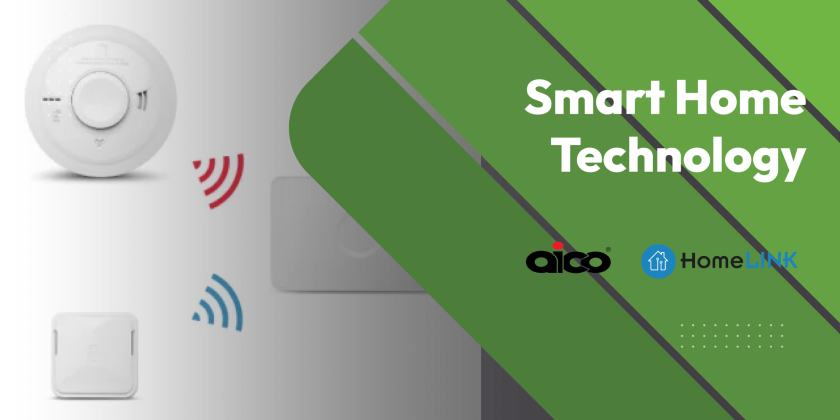Looking to enhance the energy efficiency of your home in Belfast? Cavity wall insulation could be the solution you’ve been searching for. By insulating the gap between your inner and outer walls, you could significantly reduce heat loss and save on your energy bills. In this comprehensive guide, we’ll delve into the ins and outs of cavity wall insulation, exploring its benefits, costs, and the funding options available specifically in Belfast. Let’s make your home cosier and more cost-effective together.
Understanding Cavity Wall Insulation
The Basics of Cavity Wall Insulation
Cavity wall insulation involves filling the space between the external and internal walls of a house, which are typically separated by a gap or ‘cavity’. The purpose is to reduce heat transfer, making your home more energy-efficient. Materials such as mineral wool, foam, or beads are used to fill this cavity, preventing warm air from escaping during the winter and keeping the heat out during the summer.
This kind of insulation is especially relevant in Belfast where the weather can be unpredictable. Proper insulation can lead to a significant reduction in the amount of energy required to heat your home, which not only saves money on heating bills but also reduces carbon dioxide emissions, contributing to a greener environment. It’s a practical step for homeowners looking to improve their property’s energy performance.
Importance of Cavity Wall Insulation
Cavity wall insulation is a critical component in the energy efficiency equation of a home. For houses in Belfast, where temperatures can fluctuate, it’s a key factor in not only maintaining a comfortable living environment but also in managing energy costs. Insulated walls significantly reduce the need for excess heating during the cold months and air conditioning in the warmer months by minimising heat transfer.
Furthermore, investing in cavity wall insulation contributes to a reduction in the overall carbon footprint of a household. With energy prices on the rise, the importance of effective insulation cannot be overstated. It’s not just about immediate savings on energy bills; it’s also about enhancing the value and appeal of your property in the long term. As energy efficiency becomes increasingly prioritised, properties with such improvements are likely to stand out in the housing market.
Cavity Wall Insulation in Belfast
The Current State of Insulation in Belfast
In Belfast, the uptake of cavity wall insulation has been increasing, yet there remains a significant number of homes that could benefit from this enhancement. A mixture of older properties and those built before the latest building regulations often lack adequate insulation. This presents a substantial opportunity for homeowners to improve their home’s energy efficiency.
Local authorities and energy-saving groups in Belfast are advocating for more widespread adoption of insulation measures, recognising the positive impact on both household expenses and environmental sustainability. The current state indicates a growing awareness, but also highlights a need for further education and support to enable more residents to take action. Homeowners are beginning to realise the long-term benefits of insulation, not just for their own comfort and savings, but also for the broader goal of energy conservation in their city.
Local Regulations for Insulation
Belfast, like the rest of the UK, has specific regulations in place that govern the installation of cavity wall insulation. These regulations are designed to ensure that insulation is both effective and safe. Builders and installers must comply with the Building Regulations Part L, which focuses on the conservation of fuel and power. Any new insulation work in Belfast must meet these standards, which are periodically updated to reflect new energy efficiency practices and technologies.
Local authorities require that any cavity wall insulation installation is carried out by a certified professional. This ensures that the work is done correctly and to a high standard. Homeowners looking to install or upgrade their insulation should check that the installer is registered with a recognised governing body such as the Cavity Insulation Guarantee Agency (CIGA) or the National Insulation Association (NIA) to ensure compliance with local regulations and to secure a guarantee for the work performed.
Funding for Cavity Wall Insulation
Government Grants for Insulation
In an effort to encourage energy conservation, the government has introduced various grants and schemes to help cover the cost of installing cavity wall insulation. Homeowners in Belfast may be eligible for support through initiatives such as the Energy Company Obligation (ECO), which obliges large energy suppliers to help low-income households with energy efficiency improvements.
Eligibility for these grants often depends on factors like household income, the property’s existing energy efficiency, and whether the homeowner is receiving certain benefits. It’s important to research and apply for these grants as they can significantly reduce the initial outlay for insulation, making it a more accessible option for many. Information on the latest grants and eligibility criteria can typically be found through local government websites or energy efficiency advice services operating in Belfast.
Other Funding Opportunities
Beyond government grants, Belfast residents have access to additional funding opportunities to finance cavity wall insulation. Some local authorities offer grants or loans for energy-saving improvements, which can include insulation upgrades. It’s worth checking with Belfast City Council for any such local initiatives.
Furthermore, several energy suppliers provide offers or incentives for energy efficiency measures as part of their commitment to a greener future. These can sometimes be in the form of discounts or cashback offers. Homeowners may also find that some local businesses or community groups have partnered with insulation providers to offer competitive pricing for residents.
Another avenue to explore is green finance options, which include loans specifically designed for energy efficiency home improvements. These financial products often have favourable terms, with lower interest rates to encourage uptake among homeowners. Always read the terms carefully and compare different funding sources to find the most suitable and cost-effective option for your circumstances.
Installation Process of Cavity Wall Insulation
Steps in Installing Insulation
The installation of cavity wall insulation is a straightforward process when carried out by a professional. Initially, the installer will conduct a survey to assess the suitability of your home for cavity wall insulation. This includes checking the condition of the walls and ensuring there’s no damp or structural issues that could be exacerbated by insulation.
Once the property is deemed suitable, small holes are drilled into the outer wall at strategic points. Through these holes, the chosen insulation material is injected into the cavity. The materials used might be foam, beads, or fibrous materials, each with its own method of application. After the cavity is filled, the holes are sealed to match the existing wall as closely as possible. The entire process typically takes a few hours, depending on the size of the house, and should not cause major disruption. After installation, it’s crucial to ensure proper ventilation to maintain indoor air quality.
Choosing an Insulation Provider
Selecting a reputable insulation provider is key to ensuring the quality and durability of your cavity wall insulation. Start by looking for providers who are certified under schemes like the Cavity Insulation Guarantee Agency (CIGA) or registered with the National Insulation Association (NIA). These accreditations indicate that the provider meets industry standards and follows best practices.
It’s also wise to seek recommendations from friends or family who have had insulation work done, or to read online reviews for local providers in Belfast. Take the time to get multiple quotes and ask for case studies or references to understand the provider’s track record. Be cautious of extremely low quotes as they may indicate subpar materials or service. Finally, ensure that the provider offers a solid guarantee for their work, which will give you peace of mind and protection should any issues arise post-installation.
Post-Installation Considerations
Maintenance of Cavity Wall Insulation
Once cavity wall insulation is installed, it requires minimal maintenance, which is one of its many advantages. However, it’s important to periodically check for any signs of damp or mold on the internal walls, as these could indicate issues with the insulation, such as water ingress or inadequate ventilation. It’s also wise to ensure that any external work on the house, such as repointing or replacing windows, doesn’t compromise the insulation.
If you notice a change in the thermal comfort of your home or an unexpected increase in energy bills, it may be worth having an insulation professional conduct an inspection to check the integrity of the insulation. Most insulation materials have a long lifespan, but settling or shifting can occur over time. Regular checks and prompt attention to any potential issues will ensure your cavity wall insulation continues to perform effectively for years to come.
Assessing the Effectiveness of Insulation
After installing cavity wall insulation, it’s crucial to assess its effectiveness in improving your home’s energy efficiency. An immediate indicator is a more consistent indoor temperature and a reduction in draughts. Over time, you should notice a decrease in your energy bills as your heating system won’t have to work as hard to maintain a comfortable temperature.
For a more precise evaluation, consider using a thermal imaging camera, which can detect areas of heat loss in the walls. This tool can help identify spots where insulation may not have been applied properly or has settled over time. Additionally, some homeowners opt for an energy audit, where a professional assesses various aspects of home energy use and can confirm the insulation’s performance. By monitoring your home’s energy consumption before and after insulation, you can quantify the improvements and validate your investment.



